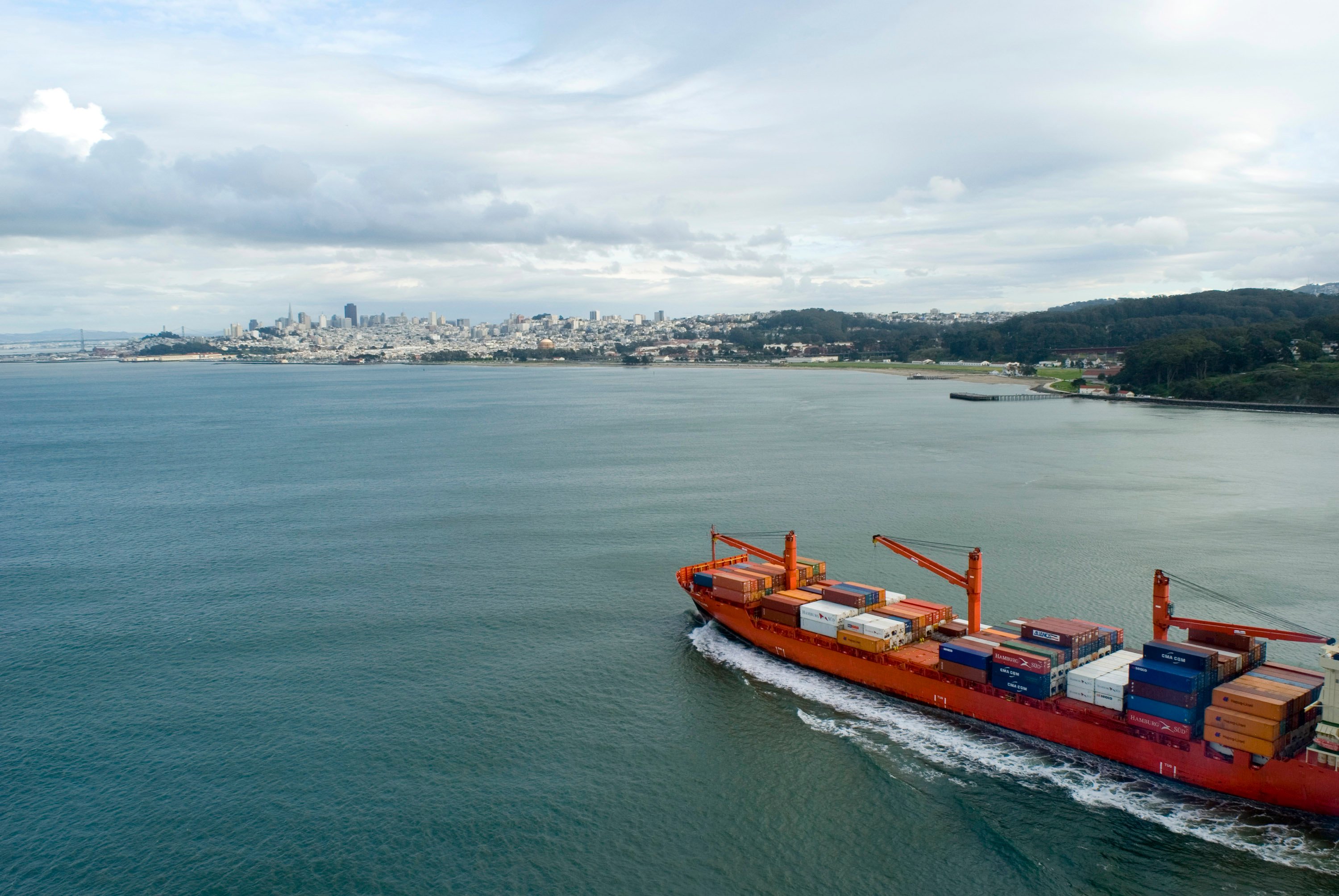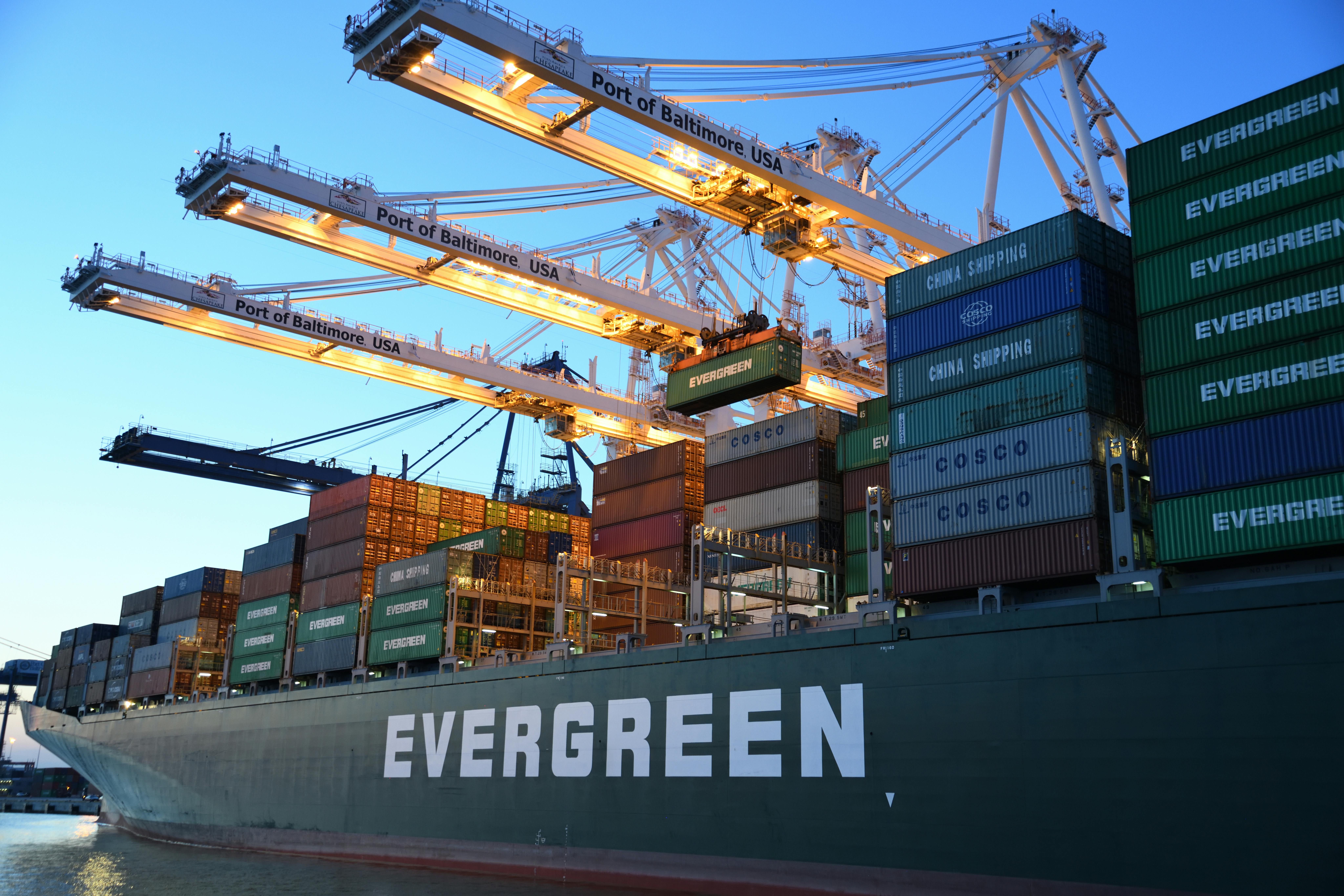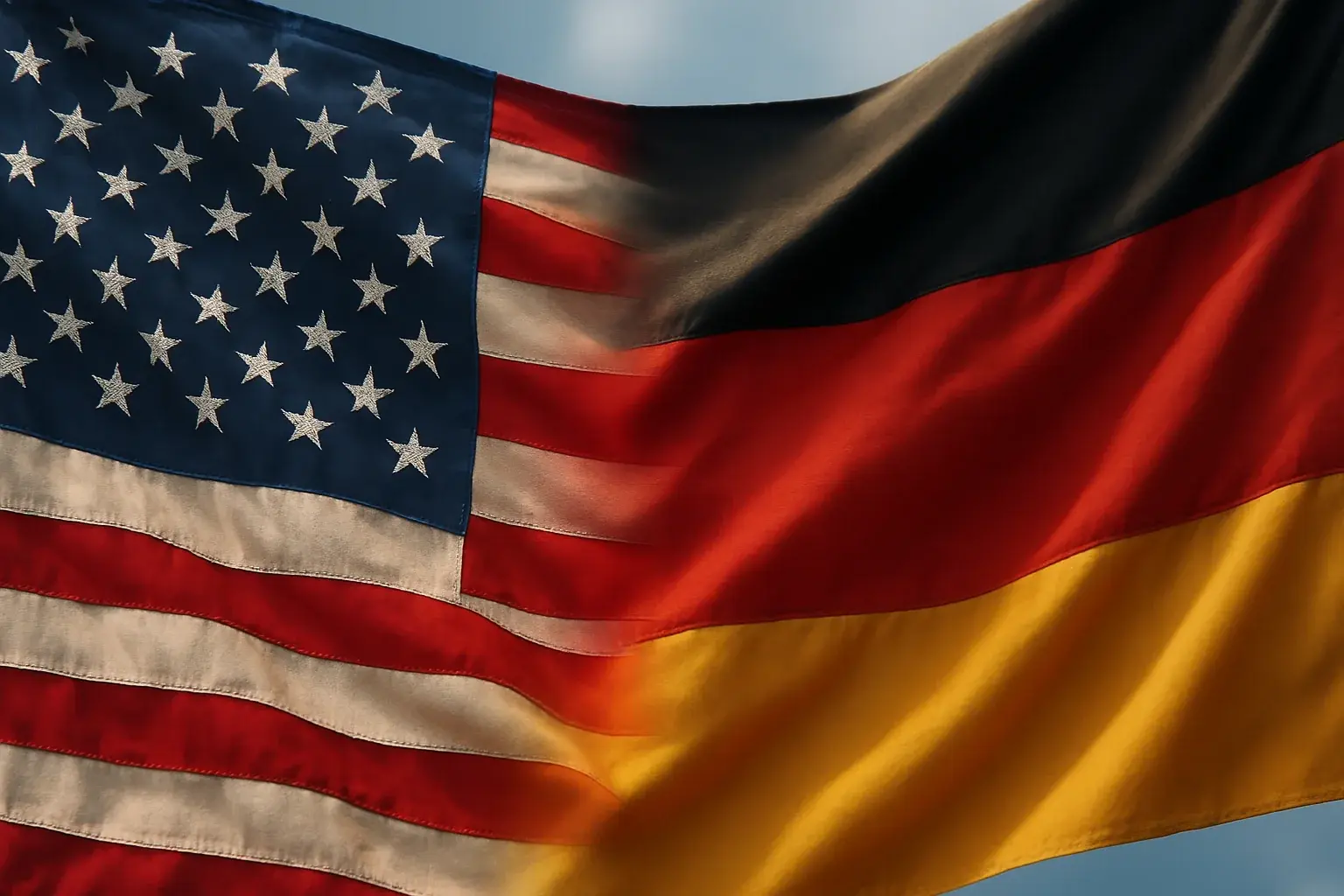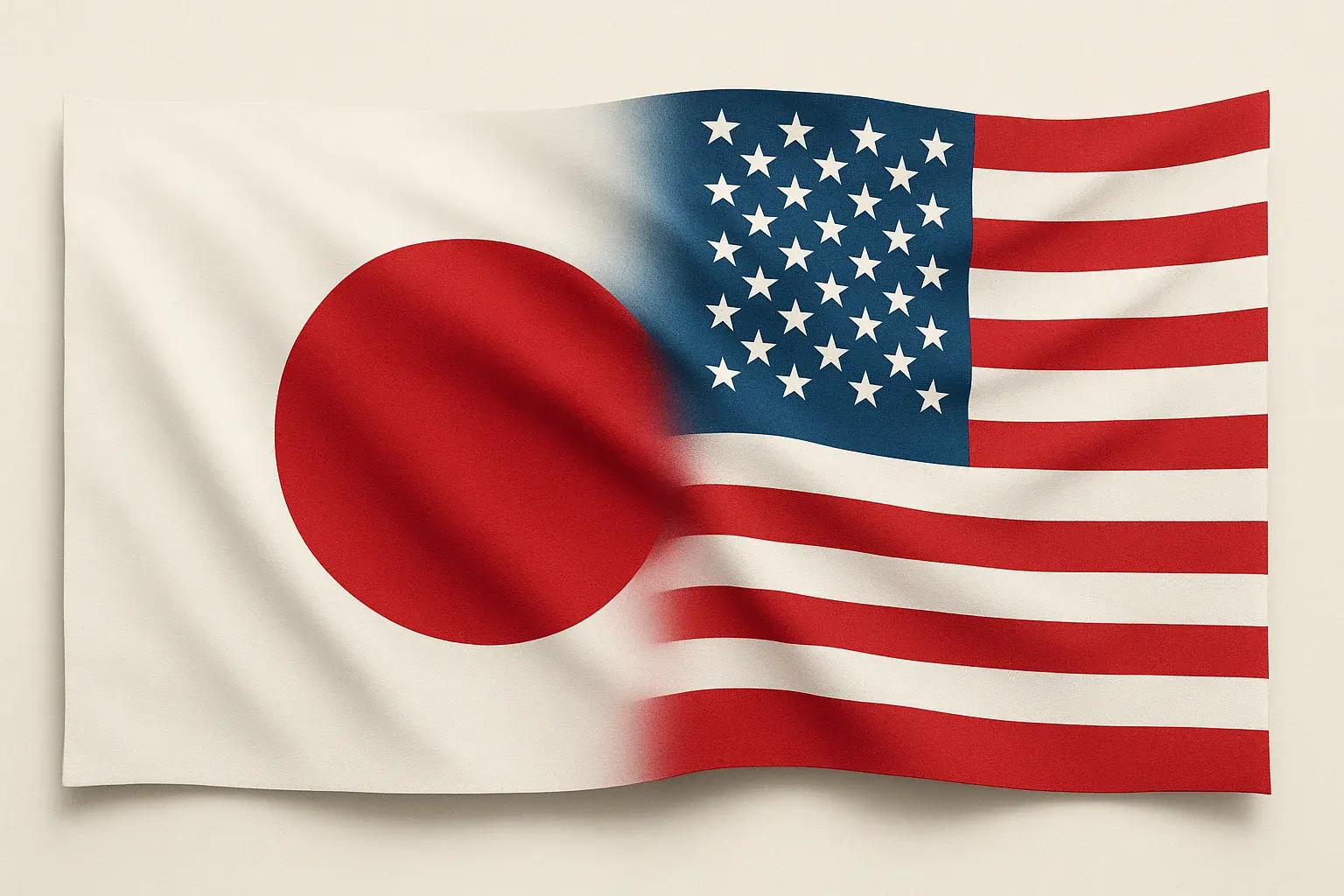Trump’s 25% Tariff on Imported Cars – Impact on Car Imports & Wholesale Trade
Updated on April 2nd 2025 to reflect that classic cars are exempt from the new 25% car import tariff. Classic cars will remain under the 2.5% car import tariff.
On March 26, 2025, U.S. President Donald Trump announced a 25% import tariff on all cars and car parts not made in the United States. This sweeping tariff takes effect on April 3, 2025 for finished vehicles, with duties on auto parts to begin by early May.
The policy represents a major shift in U.S. trade for the auto industry, raising critical questions for car buyers, manufacturers, and shippers worldwide. In this article, we analyze the implications of the new tariff in a fact-driven manner – from higher car prices and potential retaliatory tariffs by trading partners, to effects on importing cars into the U.S. (a key concern for West Coast Shipping's customers) and the outlook for exporting American-made vehicles overseas.
Overview of the New 25% Auto Import Tariff

Trump's proclamation imposes an additional 25% import tax on cars and trucks built outside the U.S., on top of the existing 2.5% base tariff rate for automobiles. In the President's words, if a vehicle is built in the United States, "there is no tariff," but any car "not made in the country" will face a 25% duty. The same 25% rate will apply to major auto parts – engines, transmissions, powertrain components, electrical systems, and more – although the parts tariff is set to kick in a few weeks later (by May 3, 2025) to allow U.S. Customs to prepare.
Justification and Implementation
Why enact these tariffs? The administration justifies them on national security grounds under Section 232 of the Trade Expansion Act of 1962. A government investigation concluded that surging imported vehicles were eroding the U.S. industrial base and could impair America's ability to develop advanced auto technologies deemed vital for national defense.
President Trump asserts that the tariff will lead to "tremendous growth" in the U.S. auto industry, claiming it will spur automakers to build more cars and parts domestically, creating jobs and new investments. The White House stated that previous trade deals hadn't done enough to protect U.S. auto production, so a tougher measure was needed to "protect and strengthen the U.S. automotive sector".
Trade Agreements and Exemptions
Partial exemptions were outlined for North American trade partners under the USMCA (United States-Mexico-Canada Agreement). Vehicles or parts that meet USMCA's rules-of-origin can get a break on the tariffs proportional to their U.S.-made content. For example, a truck built in Mexico with 45% U.S. components would still pay the 25% tariff on the remaining 55% of its value.
However, determining these content ratios is complex. Until U.S. officials establish a process to calculate U.S. content, auto parts from Canada and Mexico will be temporarily exempt from the new duty. This short-term exemption (essentially a grace period) ensures supply chains aren't immediately disrupted while rules are clarified. Notably, finished vehicles themselves do not get this delay – the full 25% applies to imported cars starting April 3, even those from Canada or Mexico.
U.S. Auto Trade by the Numbers (2024–2025)
To grasp the impact, it's important to understand how many cars the U.S. imports and exports today. America is the world's largest auto import market. In 2024, the U.S. imported roughly 8 million passenger cars from overseas, worth about $240 billion – which accounted for about half of all cars sold in the U.S. that year.
Major sources include Mexico (the #1 foreign supplier of cars to the U.S.), followed by South Korea, Japan, Canada, and Germany. These five allies alone make up a huge share of U.S. auto imports. If you include trucks, SUVs, and auto parts, the numbers are even higher – total automotive imports were valued at $474 billion in 2024.
By contrast, the U.S. exports far fewer cars than it imports. In 2023, U.S. automakers exported about $63 billion worth of passenger vehicles globally. This made the United States only the fifth-largest car exporter by value (behind Germany, Japan, China, and South Korea).
America's auto trade deficit tells the story: the U.S. ran a –$147 billion net deficit in international car trade in 2023, importing much more than it shipped out. Canada and Europe are among the top destinations for U.S.-built cars, but those export flows are dwarfed by the volume coming in. This imbalance is precisely what the new tariff aims to address in the eyes of the administration – encouraging domestic production to replace imports.
Immediate Impact: Higher Prices & Industry Reactions

The announcement of the 25% tariff sent shockwaves through the auto industry. Global automaker stocks tumbled on the news as investors grappled with the likely fallout.
U.S. car companies and dealers, while welcoming the goal of more American production, warned that costs will rise sharply in the short term. Because about half of U.S. auto sales are imports, a 25% duty can add thousands of dollars to vehicle prices. Analysts across the board expect new car prices in the U.S. to jump.
- J.P. Morgan estimates the tariffs will raise average new car prices by $4,000 to $5,300
- Cox Automotive projects roughly $3,000 added to the cost of U.S.-built vehicles (due to higher parts costs) and up to $6,000 on imported cars from Canada or Mexico that don't qualify for exemptions
- Another analysis by Anderson Economic Group found that if key components from Mexico and Canada were all taxed at 25%, it could add anywhere from $4,000 up to $10,000 per vehicle in production cost, depending on the model
For consumers, this means steeper sticker prices almost across the board. Luxury automakers like Ferrari have already announced price hikes up to 10% on their models sold in the U.S. to offset the tariff. Mainstream brands will also pass on costs where possible – or potentially strip certain features to cut expenses.
As one industry executive noted, "Most car makers can't eat 25%, they just can't… that means they will pass on as much of the cost as they can," perhaps by removing high-end options or trim features to keep base prices semi-affordable. Some companies might discontinue their cheapest imported models entirely if those vehicles become unprofitable under the tariff.
Industry experts pointed to affordable popular imports like the Honda CR-V, Chevy Trax, Subaru Forester, Chevy Equinox, and Honda HR-V – many of which are built overseas – as models that could vanish from the U.S. market or see big price increases in order to maintain profit margins.
Dealers are bracing for a downturn in sales once existing inventory is sold. U.S. new vehicle sales, which were about 16 million units in 2024, are forecast to fall to ~14.5–15 million in coming years if the tariffs persist. That would be a significant decline in demand due to higher prices.
Automakers might also ration certain models or prioritize domestic production for the U.S. market, potentially leading to less variety on dealer lots. In the short term, some consumers have rushed to buy cars before prices climb – reports emerged of buyers finalizing purchases in late March out of fear that "prices are probably gonna jump, and they're already high".
U.S. dealers currently have healthy inventories (around 90 days' supply on lots), which could cushion the immediate shock. But once those cars are sold, shortages or delays could arise if imports slow down and production retools.
Auto parts suppliers face challenges as well. Many American car dealers rely on imported parts for repairs and maintenance. Those parts will become pricier, which could raise service and repair costs for consumers. On the other hand, some analysts noted that if people hold onto cars longer (because new cars are too expensive), it might actually boost business for parts and service departments in the long run.
Still, for manufacturers, a highly-integrated supply chain built over decades is being upended. North American auto production under NAFTA/USMCA is tightly interwoven – cars and components often cross U.S., Mexico, and Canada borders multiple times during assembly. With tariffs now biting into each cross-border trip, disruption is expected "almost immediately".
Cox Automotive predicts "virtually all North American vehicle output" will see some impact by mid-April, potentially cutting production by ~20,000 cars per day (about 30% of output) as supply lines adjust or pause to avoid tariffs.
Unsurprisingly, major automakers and industry groups have been vocal:
- Germany's Volkswagen warned that "the entire automotive industry, global supply chains and customers will have to bear the negative consequences" of these tariffs
- The American Automotive Policy Council (which represents Detroit's Big Three: Ford, GM, Stellantis) publicly supported the goal of increasing U.S. production but urged that it is "critical" the policy be implemented in a way that avoids burdening consumers with price hikes
- In recent weeks, U.S.-based companies like Ford and General Motors had lobbied the White House for exemptions or a more gradual approach, given their reliance on North American production networks.
Nevertheless, the tariff plan is moving forward full steam, leaving automakers to either "ride it out" or undertake costly shifts in manufacturing:
- Some, like Volvo, Audi, Mercedes-Benz and Hyundai, have already said they will shift more production to U.S. plants to mitigate tariff costs
- Others, such as Ferrari (which builds all cars in Italy), are simply raising U.S. prices and accepting a likely dip in sales.
Global Response: Retaliatory Tariffs & Trade Tensions
Because the U.S. imports cars largely from close allies, Trump's tariff has been described as a "sucker punch" to some of America's most important partners. Governments in Canada, Europe, and Asia quickly voiced concerns and hinted at retaliation.
Canadian Prime Minister Mark Carney denounced the move as a "direct attack" on Canada's car industry, given how deeply integrated Canada's auto sector is with the U.S. Vehicles are Canada's second-largest export (after oil), totaling about $51 billion in 2023 – and 93% of those vehicles went to the U.S. market. A 25% U.S. tariff on those exports threatens severe damage to Canada's economy.
Carney vowed that Canada "will need to reduce our reliance on the United States" and hinted at countermeasures. Indeed, Canadian officials have signaled they are prepared to respond with their own trade actions against U.S. goods. (In 2018, when faced with U.S. steel and aluminum tariffs, Canada retaliated dollar-for-dollar; a similar stance is likely now.)
In Europe, leaders were equally alarmed:
- German Chancellor Olaf Scholz said "the U.S. has chosen a path at whose end lie only losers, since tariffs and isolation hurt prosperity for everyone"
- Germany – home to BMW, Mercedes, VW and a huge auto-parts industry – saw billions of euros wiped off its automakers' stock values after the announcement
- France's finance minister called Trump's plan "very bad news" and bluntly stated that "the only solution was for the EU to raise its own tariffs" in response
EU officials in Brussels have so far taken a cautious line, saying they will review the U.S. measures and "consider potential response" options. "Tariffs are taxes – bad for businesses, worse for consumers… The EU will continue to seek negotiated solutions, while safeguarding its economic interests," said European Commission President Ursula von der Leyen in a measured statement.
Nevertheless, if the U.S. auto tariffs persist, the EU could invoke its own tariffs on American products. (The EU already imposes a 10% tariff on imported U.S. cars under WTO rules, but could raise that further or target other industries for retaliation.)
Mexico, Japan, and South Korea – all key auto exporters to the U.S. – have also been drawn into the fray. As top suppliers of cars to the American market, these countries stand to lose significantly. Japan and South Korea export millions of vehicles to the U.S. annually (think of popular models from Toyota, Honda, Hyundai, Kia, etc.), and their officials have expressed dismay at the tariff.
While formal retaliation from Asian allies has not been announced as of this writing, trade tensions are high. Observers note that Japan and South Korea might focus on diplomacy (both nations have security ties with the U.S.) rather than immediate counter-tariffs, but European and North American partners are under domestic pressure to react in kind.
It's worth noting that President Trump has warned against retaliation. Early on March 27, he even threatened "far larger" tariffs if the European Union and Canada retaliate in a way that he views as doing "economic harm" to the U.S.
This rhetoric raises the stakes and suggests a potential auto trade war: if U.S. trading partners answer with tariffs on American cars or other goods, the situation could escalate with further U.S. counter-tariffs.
All of this uncertainty is roiling the global auto industry. A major German port operator (BLG in Bremerhaven) is already planning for a 15% reduction in automobile shipping traffic in anticipation of the U.S. tariffs taking effect. Industry veterans say "everyone hurts" in a tariff fight – from the factory worker who might see reduced orders to the consumer facing higher costs on both sides of the ocean.
Impact on Importing Cars into the U.S.
For individuals and businesses looking to import cars into the United States, this new tariff has immediate cost implications. West Coast Shipping specializes in helping customers ship cars to the U.S. from overseas, so we understand the concerns importers have right now.
The key point is that starting April 3, 2025, any car imported into an American port will incur a 25% import duty (in addition to the standard 2.5% tariff that was already in place). Practically, if you are importing a vehicle valued at $40,000, the tariff owed at U.S. customs jumps from about $1,000 (old duty) to $11,000 (new duty) with this policy.
Importers must budget for this substantial increase. This change affects modern vehicles. There are no increases to the import duty for classic cars. Cars that are 25 years and older will remain tariffed at the current 2.5% import duty. with no exemption based on a car's age or type.
(One small silver lining: vehicles that are built in the U.S. and being re-imported might qualify for duty-free treatment since they’re American-made, but very few import shipments fall in this category.) Additionally, from May 2025 onward, common car parts and components shipped into the U.S. will likely face the 25% tariff as well. This is crucial for anyone importing engines, transmissions, or even large numbers of aftermarket parts – costs will rise.
Importers should also be mindful of timing and customs procedures. U.S. Customs and Border Protection will enforce the tariff based on the arrival date of the goods. Any vehicle that enters a U.S. port on or after the effective date is subject to the new duty. West Coast Shipping has been working closely with our customs brokerage partners to clarify how in-transit shipments are handled. If your car was already on the water before the announcement, it unfortunately will still get hit by the tariff if it lands after April 3. There is no grandfather clause in the proclamation for goods already in transit. We are advising customers who have vehicles on the way to be prepared for the higher duty on arrival, and we’re helping to expedite paperwork where possible to avoid any additional delays at port.
For those planning new imports, knowledge and preparation are key. West Coast Shipping’s online International Car Shipping Calculator is an excellent tool to get instant quotes for shipping costs, and we are updating it to reflect any new fees or surcharges. While the calculator will show you ocean freight or air freight rates and our service fees, remember that import duties (like this tariff) are paid separately to U.S. Customs upon entry. We strongly encourage importers to consult with our team for a full cost breakdown before purchasing an overseas vehicle right now.
Our specialists can help you estimate the customs duty and advise on any applicable exemptions (for instance, if a car has enough U.S./Canadian content to qualify for partial relief under USMCA rules, we can guide you on obtaining the proper certification). West Coast Shipping also stays up-to-date with U.S. Customs regulations – as the government releases the specific implementation details (HS codes affected, etc.), we will help ensure your paperwork is in order so that your car clears customs smoothly even with the new tariff.
Despite the higher costs, enthusiasts are still importing special vehicles, especially rare classics that may not be available stateside. One recent example covered on our blog is the 1994–1996 Chevrolet Impala SS, a “stealth” muscle sedan which has a cult following. As these iconic sedans turn 30 years old, they become eligible for easier importation to countries like Japan under classic car exemptions.
If you’re importing an Impala SS or any collector car to the U.S., rest assured we handle such shipments regularly. (For more background on that model and its import process, see our Chevrolet Impala SS Buying Guide: The Ultimate Stealth Muscle Sedan, which illustrates how West Coast Shipping assists with shipping classic American cars abroad and back.) Classic car importers should note: while vehicles over 25 years old are exempt from certain EPA/DOT regulations in the U.S., they are not exempt from tariffs, so the 25% duty will apply to that dream vintage Ferrari or JDM coupe you’re bringing home. The UK’s Historic & Classic Vehicles Alliance (HCVA) has expressed concern that historic vehicles and parts are being unintentionally impacted by these tariffs, as they cannot be recreated in the USA. Dealers, auction houses, and shipping agents are hopeful that cars over 25 years old might be made exempt, but as of right now, this is not the case. Any car originally manufactured in the US, regardless of age, can be re-imported without tariffs, and any vehicle over 100 years old is classified as an antique and is also exempt.
The financial impact will be significant for classic cars. A $100,000 car would now face $27,500 in import fees, and a $1 million car $275,000. This could slow down the flow of classic cars from Europe and the UK to the US. Cars already in transit will also be subject to the new tariff, even if purchased under the expectation of the 2.5% duty. Some importers might use a Temporary Import Bond (TIB) for repair or restoration, but this prevents the car from being sold for three years. There is also potential for cars assigned for auction at Monterey Car Week to be withdrawn if the tariffs are not rescinded.
Impact on Exporting U.S.-Made Vehicles & Classic Cars Overseas
Beyond imports, many are asking how the tariff might affect exports of American cars to other countries. The tariff itself is a U.S. import tax; it doesn’t directly tax U.S. exports. However, the concern is retaliation – if trading partners answer in kind, they may impose new tariffs on American-made cars entering their markets. This is highly relevant for West Coast Shipping’s customers who ship cars from the U.S. to overseas buyers. We handle a large volume of classic car exports – from modern Teslas going to Europe, to vintage Mustangs, Corvettes, and muscle cars heading to enthusiasts in Australia, the U.K., Germany, and beyond. Our clients want to know if their overseas customers will suddenly have to pay more to import U.S. vehicles.
Several key U.S. trading partners have hinted at or begun preparing retaliatory tariffs. If countries like Canada, the U.K., or EU nations add a 25% import duty on U.S.-built cars, it would raise the cost for foreign buyers purchasing American vehicles. For instance, the U.K. is a major buyer of U.S. cars – in 2024, Jaguar Land Rover actually sold more vehicles in the U.S. than in the U.K., indicating how interlinked the markets are. Conversely, the U.S. is a top export market for British car manufacturers. The British government is urgently negotiating with Washington for an exemption, as the U.S. is the second-largest export market for U.K. carmakers (after the EU) and mainly high-end British luxury cars are sent to American buyers.
If that effort fails and the U.K. faces the U.S. tariff, they might counter with their own levy on U.S. cars. The EU, as noted, is considering its options and could raise its existing auto tariff on U.S. imports above 10%. Canada and Mexico could also impose tariffs on vehicles imported from the U.S., though because of the integrated supply chain, they might target other industries instead to avoid self-inflicted harm in autos.
What would retaliatory tariffs mean in practice? Say a collector in Germany wants to import a classic American muscle car – for example, a 1970 Chevelle SS or a 1965 Ford Mustang. Normally, that buyer would pay the EU’s standard 10% import duty (plus VAT) to bring the car in. If the EU were to double that tariff or raise it to 25% specifically for U.S.-origin vehicles, the cost for that German client jumps significantly. This could dampen international demand for American classics and exotic cars. We might see some overseas buyers accelerate their purchases now, to get ahead of any possible retaliatory taxes. In fact, whenever trade tensions spike, there’s often a short-term rush – similar to how U.S. consumers rushed to buy imports before April, foreign buyers may try to buy American cars before their governments respond. West Coast Shipping is already fielding inquiries from clients in Europe about whether they should ship cars sooner than planned, just in case. Our advice is to stay informed: we monitor trade policy developments in all the major markets we serve. If a country enacts a new tariff on U.S. vehicles, we will promptly update our customers and adjust our shipping strategies accordingly.
It’s also important to remember that many American-made cars are still desired overseas despite potential tariffs. The U.S. exported over $63 billion in cars in 2023, with popular models including electric cars, luxury SUVs, and of course, classic American muscle which remains a thriving niche. West Coast Shipping has decades of experience exporting U.S. vehicles to destinations worldwide. We offer guidance on destination country import rules and duties as part of our service. For example, we help clients understand the import tax and registration process in Europe, the 15-year or 25-year vehicle age rules in countries like Canada and Australia, and any special exemptions for classic cars. In some cases, historic vehicles over a certain age enjoy reduced tariffs in the destination country. Our team will help identify if your export might qualify for such benefits to mitigate costs.
At this time, no foreign country has formally implemented a retaliatory auto tariff – but the situation is fluid. Canada’s leadership has strongly hinted at counter-tariffs, and European officials are debating their response. We anticipate that if the U.S. tariffs remain in place for more than a few months, countermeasures are more likely. West Coast Shipping is committed to assisting our customers in navigating these changes. If you are exporting a car from the U.S., we will keep you informed about any new import fees on the receiving end. We can also offer strategic advice, such as optimal shipping times or routes. For instance, if a country plans to levy a tariff starting on a certain date, we can attempt to schedule shipment arrivals before that date when possible. Our global network of agents and customs experts means we receive up-to-the-minute information from ports around the world.
Possible Silver Linings: Negotiation, Reciprocity, and Market Shifts
While much of the current focus is on rising costs and increased trade tension, some industry experts are considering how things might evolve over time, including some unexpected side effects. One possibility is that the administration is using these tariffs as a bargaining chip to reach more balanced trade agreements. For instance, if the EU or other countries agreed to reduce their tariffs on U.S.-made vehicles, the U.S. might adjust its own new tariffs in return—potentially giving a boost to American auto exports.
Changes in tariff policies could also have more complex effects on car prices at home. Some analysts suggest that if the high U.S. import tariff is eventually lowered through negotiations—say, from 25% down to 10% or less—or if other countries ease their retaliatory tariffs, it might raise the value of used cars in the U.S. market. This shift in residual value could, somewhat unexpectedly, lead to better lease deals for consumers over time, since the gap between the car’s initial price and its expected value at the end of a lease would be smaller. While still speculative, these kinds of long-term trends offer a more hopeful angle amid today’s concerns.
Navigating the Road Ahead: West Coast Shipping’s Support
The imposition of a 25% tariff on imported cars represents a significant change, but it’s one that West Coast Shipping is prepared to handle with confidence. As an international car shipping provider with over a decade of experience, we have weathered many policy shifts – from Brexit customs changes to earlier tariffs on steel and aluminum. Our approach is always to keep our customers informed and adapt our services to ensure smooth shipping even amid new regulations.
Here’s how West Coast Shipping is helping customers navigate the new costs and challenges:
- Comprehensive Cost Estimates: We provide detailed quotes that outline shipping costs, estimated duties, and destination charges. With the new U.S. tariff, our team will walk importers through calculating the 25% duty so there are no surprises. We encourage using our online car shipping calculator for a quick baseline quote, then discussing with us about the tariff impact. Transparency is key – you’ll know what to expect at each stage.
- Expert Customs Guidance: Our in-house customs liaison and network of brokers stay on top of the latest U.S. Customs bulletins. As the government refines how the tariff is applied (for example, detailing which HS codes for parts are affected, or how to document USMCA content credits), we integrate that into your shipping plan. We assist in preparing any needed paperwork to certify U.S. content on vehicles coming from Canada/Mexico, which can reduce the taxable value of the import. Likewise, for exports, we coordinate with foreign agents to pre-clear vehicles and ensure you take advantage of any applicable exemptions abroad.
- Flexible Shipping Options: The tariff doesn’t change how we physically ship cars, but it may influence your choices. For urgent needs, West Coast Shipping offers air freight services – an option some importers considered in late March to beat the April 3 deadline. We continue to offer air freight for high-value vehicles or time-sensitive shipments. For most customers, ocean freight (in container or via RoRo) remains the cost-effective mode, and we consolidate shipments when possible to save you money. If the trade situation evolves (say, a short-term tariff that might be rolled back later), we can also discuss storage solutions – for instance, temporarily holding a vehicle in our overseas warehouse if a customer prefers to delay shipment in hopes of a policy change. Our goal is to tailor the shipping strategy to your needs and the current trade climate.
In summary, Trump’s 25% tariff on imported cars and car parts is a game-changer for the auto industry, with wide-ranging implications for global trade and car enthusiasts alike. Prices are expected to rise in the U.S., foreign governments are weighing retaliatory moves, and supply chains are adjusting to a new reality. Through all this, West Coast Shipping remains your reliable partner in international car shipping. We are actively helping our customers navigate new costs and regulations – from importers bringing cars into America who now face higher duties, to exporters sending U.S. vehicles abroad amidst potential foreign tariffs. Our stance is simple: whatever the rules are, we’ll help you understand them and find the best way to accomplish your car shipping goals.
No matter the challenges, our mission is to deliver your cars when and where you need them, safely, efficiently, and with expert guidance at every turn. If you have questions about how the new tariffs might affect your upcoming shipment, please reach out to us. As a team of car lovers and logistics experts, we’re committed to steering our customers through the shifting terrain of international auto shipping. Tariffs or no tariffs, West Coast Shipping will keep you moving forward.
You May Also Like
These Related Stories

Spanish Auto Tariffs: Complete Guide to Importing US Cars to Spain

Germany's 10% Import Duty: Impact on US Muscle Cars & Luxury Vehicles

-093789-edited.png?width=220&height=79&name=wcs_final_logo_(1)-093789-edited.png)
